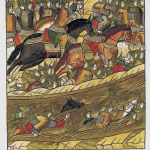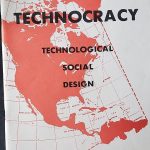With election day upon us here in Vermont, I got to thinking about voting and what that takes. The short answer is: you’ve got to think for yourself. After all, this is what real democracy demands, that each of us weigh in with our own choices. Even though the election itself is winner takes all and not necessarily a reflection of all views, it still takes all views to determine the winners. Everyone’s vote is part of the outcome.
Thinking for yourself is a very active process. For starters, you have to learn something about your topic. If it’s school issues, you would need to acquaint yourself with some basic information (how are schools run now), some particulars about the situation at hand (what changes are being proposed), opinions from others for and against, and then, you would still have to think about it all to determine how you yourself think about the matter. This is work! But it’s worth it. You are now an informed citizen thinking for yourself on matters of public import.
But ok, you’re busy, you hate to research things, you don’t care that much anyway, whatever the reason, there’s a way out, albeit a risky one. You can identify with a group or groups (friends and family, Democrats, Republicans, Progressives, or what have you) and adopt the socially acceptable platform of that group. This makes deciding how to think — and hence how to vote — very easy. There’ a crib sheet and you can just go down the list and agree with everything on it.
Most of us are not that simple, however. In real life, we don’t think uniformly on anything, and it’s unlikely that just because we’re being good Republicans, let’s say, that we agree on every aspect of that platform or every candidate. If we’re thinking for ourselves, we will act on our disagreement with certain policies — overspending, a new war, a bad tax. We might say, “there are aspects of that legislation that I believe to be unfair” or “that candidate seems weak on important issues so I won’t vote for them.” If we’re not thinking for ourselves, we will blindly follow, leaving the vaguaries of why our choices are superior to the “experts.”
In local politics, where candidates are many but not necessarily well known, there’s another way to vote — just vote for the first candidate(s) for each position, regardless of who they are. A variation on this is “vote for anyone you’ve heard of” which is especially silly if all you know about a person is their name. Fortunately, in Brattleboro, this just means some town meeting reps are more likely than others to get votes (assuming more candidates than seats).
As you can see, there are lots of ways to avoid becoming an informed citizen, and they’re much easier than doing the research and thinking required to understand an issue and form an opinion. But if you have the time, it’s a lot more fun to know what’s going on then not.
An election is sort of like a sporting competition — if you don’t know the rules or any of the teams and players, it’s not going to be very interesting. How will you know who to root for? As for group thinking, my team vs. your team, it defeats the whole purpose of democracy which is about individual votes, not the platforms of political institutions.
We hold elections to find out what the people think, and that system can only work if we think for ourselves.




